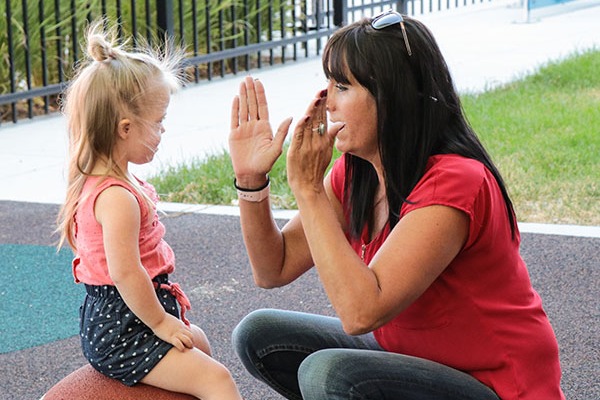IDRPP Project Offers Free Training to Early Intervention Professionals

Rural Utah’s early intervention professionals sometimes work in isolation. But outside of attending a conference, which takes time and money, they may have few opportunities to draw from other professionals’ expertise—until now.
Project Early ECHO allows professionals to gather virtually once a month. These sessions follow the ECHO model, which takes a hub-and-spokes approach to professional development. Sessions begin with a formal presentation from an expert team on a topic. Then they progress to case studies offered up by participants. Peers on the video call can offer their input. The sessions follow guidelines that protect the privacy of clients, but they can help service providers look at a case from different angles.
It is just one ECHO project at the Institute for Disability Research, Policy and Practice. Janel Preston, program coordinator of both the Early ECHO and Project SCOPE groups, said the model helps attendees learn good strategies to help their clients. (Project SCOPE is also geared for early childhood professionals, but it focuses specifically on issues faced by babies who were affected by neonatal abstinence syndrome, neonatal opioid withdrawal syndrome, or who have been impacted by opioid use.)
“The really nice thing is that the trainings are free,” said Adrienne Seamans, a doctoral student who worked on the pilot version of the Early ECHO project. “That is really nice, especially when you live in rural areas. Training can get expensive because of all the traveling.”
Seamans is a doctoral student from the University of Idaho who was on a team of trainees in the Utah Regional Leadership Education in Neurodevelopmental Disabilities program. As part of their training experience, the team started a pilot program that became the Early ECHO project. “We did a needs assessment initially, and had the people responding help guide us to find topics they wanted to learn more about,” Seamans said.
The pilot was successful, and it was turned over to IDRPP so it could continue.
To find out more about Early ECHO topics, register or view a session that has already aired visit the project page. You can also find out more about the ECHO model.

